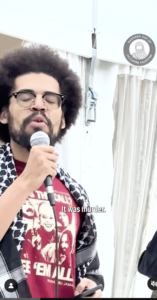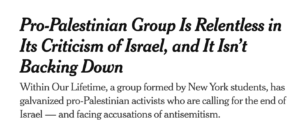The past academic year saw an unsettling rise in antisemitism on American college campuses as anti-Israel protests swept through some of the nation’s most prestigious universities. Initially, college administrations, seemingly paralyzed by indecision, justified these disruptions under the guise of protecting students’ rights to express themselves—even as protesters commandeered campus spaces with “anti-Zionist” encampments that effectively ostracized Jewish students.
The situation reached a breaking point after disastrous congressional hearings led to the resignations of Harvard President Claudine Gay and Penn’s Liz Magill, casting a harsh light on university leadership’s ineffectual handling of protests. At institutions like Harvard and Columbia, these demonstrations escalated into aggressive actions, prompting reluctant administrators to call in police and impose disciplinary measures on some student protest leaders.
While these resignations and official responses might have signaled a potential turning point, evidence suggests little has truly changed.
Harvard University, for example, has long grappled with allegations of campus antisemitism, from the Cornel West tenure controversy to recent scenes of blatant hostility toward Jews. Last year, one of the most disturbing incidents unfolded at the Harvard Business School during a “Stop the Genocide in Gaza” protest, where a pro-Israel student attempting to film the event was reportedly surrounded and assaulted by a crowd chanting, “Shame, shame, shame.”
While Claudine Gay’s resignation marked an official acknowledgment of the crisis enveloping Harvard, other troubling signs remain. The university has quietly backtracked on some disciplinary measures imposed on student agitators. A prominent example is Prince Aviunce Williams, a Harvard class of 2025 student and co-founder of the African American Resistance Organization (AFRO), who received a full academic scholarship to attend Harvard. After leading campus rallies where the Hamas slogan “From the River to the Sea”—a call for Israel’s destruction—was chanted, Williams faced suspension.

However, he announced in July that Harvard had reversed its decision, releasing a video in which he declared, “Make no mistake, the reversal of these charges is not a reflection of the good nature of the institution but a demonstration of the power of our organizing. When I rejoin my peers this fall, we must understand our movement is working, that our momentum is growing, and that Palestine will be free from the river to the sea.”
At Columbia University, there was a similar surge in antisemitic incidents with even faculty joining in. Among the most disturbing was tenured professor Joseph Massad’s article for Electronic Intifada, in which he lauded Hamas’ October 7 massacre of Israeli civilians as “astonishing” and “incredible.” This appalling endorsement of terror sent shockwaves through Columbia’s Jewish community, yet Massad has been invited to teach a course on Zionism and the “History of the Jewish Enlightenment” during the Spring 2025 semester.
Joseph Massad, the @Columbia professor who called Hamas’s October 7th attack “stunning” and “awesome,” is teaching a course next semester on Zionism. @Columbia, how are you allowing such a blatant antisemite to teach a course on the history of the very people he hates? pic.twitter.com/NXTKgGB7u6
— Eliana Goldin (@Eliana_Goldin) November 4, 2024
The administration’s stance toward faculty echoes its inaction on student-led protests. Johannah King-Slutzky, a doctoral student and prominent activist, epitomized protesters’ sense of entitlement when she led a press conference demanding “humanitarian aid” for students occupying campus buildings. King-Slutzky, despite her role in leading the disruption, now teaches a required undergraduate course, “Contemporary Western Civilization,” in Hamilton Hall—the very building she helped occupy, leading to the arrest of 22 students during the 2024 fall protests.
And while Columbia had promised firm disciplinary action, an August congressional report reveals that 18 of those arrested remain in good standing, underscoring the administration’s reluctance to impose meaningful consequences.
Columbia student Khymani James made headlines after he was banned from the university for inciting violence against “Zionists,” declaring that they “don’t deserve to live.” Following his suspension in April, James acknowledged in a since-deleted post on X that he had indeed made the inflammatory remarks, but defended them by stating, “Be grateful that I’m not just going out and murdering Zionists.”
However, just six months later, the coalition of anti-Israel groups that initially apologized on his behalf reversed course and doubled down on support for violence against Israel. Columbia University Apartheid Divest (CUAD) posted a statement on Instagram retracting their previous apology: “Last spring, in the midst of the encampments, [CUAD] posted a statement framed as an apology on behalf of Khymani James,” the post read. “We deliberately misrepresented your experiences and your words, and we let you down.” CUAD’s message reaffirmed its endorsement of armed “resistance.”
Now, James is suing Columbia University, seeking to overturn his suspension and regain his campus standing.
Yet, nothing illustrates how some of the most antisemitic student leaders have reveled in their notoriety, building careers from the infamy, quite like The New York Times’s recent piece about the extremist group Within Our Lifetime, led by former CUNY law student Nerdeen Kiswani. Published earlier this month, the article paints the group as one that “galvanized pro-Palestinian activists,” while reducing well-documented antisemitism to mere “accusations.”

The article even romanticizes Kiswani’s arrival at a Columbia University encampment “on her wedding day in April, still wearing her traditional red and white dress,” while downplaying the more troubling aspects of her “activism” for Within Our Lifetime, a group frequently linked to aggressive and violent anti-Israel protests.
But these high-profile cases reflect a deeper, more pervasive trend within these universities. Institutions like Harvard and Columbia seem more intent on appeasement than on confronting the root issue of antisemitism.
So, has anything truly changed? With quiet reversals of disciplinary actions and selective inaction, it seems that higher education is simply poised to look the other way when it comes to the safety and rights of Jews.
Liked this article? Follow HonestReporting on Twitter, Facebook, Instagram and TikTok to see even more posts and videos debunking news bias and smears, as well as other content explaining what’s really going on in Israel and the region.
Credits via Getty Images: Andy Soloman/UCG/Universal Images Group; Erik McGregor/LightRocket



